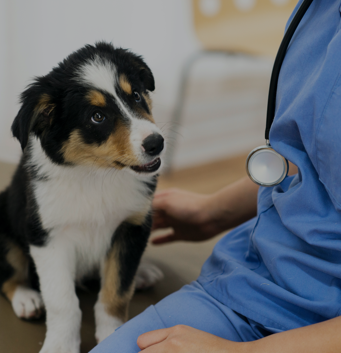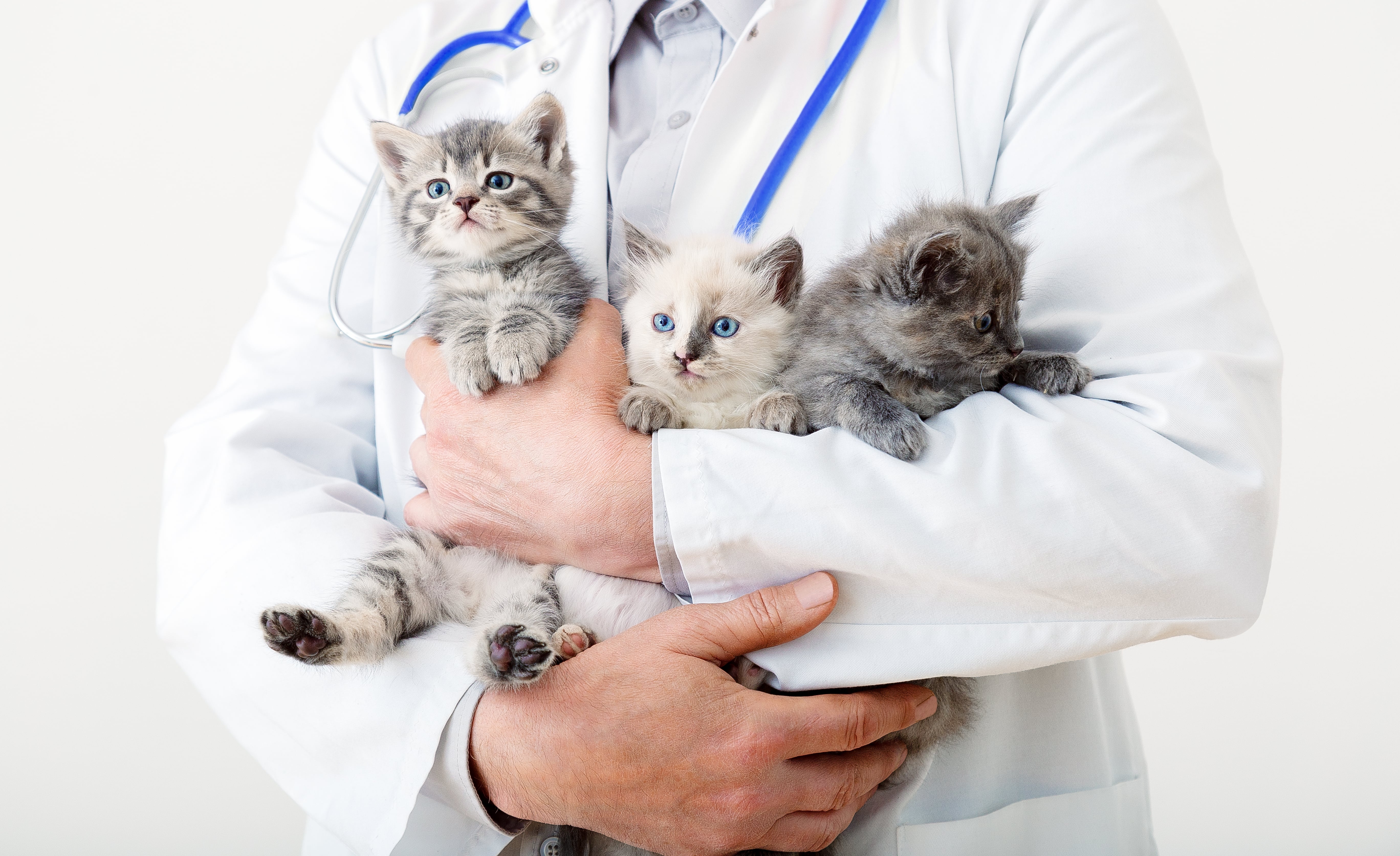Understanding the role of modern Veterinary medicine
Just How a Veterinary Specialty Hospital Can Treat Your Animal's Conditions With Advanced Techniques
Veterinary specialty hospitals play an essential function in addressing complicated wellness problems in animals. They utilize advanced techniques and technologies that enhance diagnosis and treatment. With access to specialized solutions, pet owners can find customized options for their pets' disorders. This elevates essential concerns about the details techniques utilized and the benefits they offer. Comprehending these aspects can especially influence a pet's recovery journey.
Understanding the Function of Veterinary Specialty Hospitals
Although medical care vets provide crucial services for pet wellness, veterinary specialty hospitals play an essential role in dealing with complex clinical problems that need advanced diagnostics and treatment. These facilities are geared up with specialized modern technology and experienced experts who concentrate on certain areas of vet medication, such as neurology, cardiology, and oncology.
Veterinary specialty hospitals facilitate a collective strategy, typically operating in combination with a pet's key vet to produce extensive care strategies. They supply access to sophisticated imaging methods, such as MRI and CT scans, which are not generally readily available in standard centers. On top of that, these hospitals supply intensive care units for critically ill family pets, making sure round-the-clock surveillance and support.
Specialized Solutions Offered by Veterinary Professionals
Veterinary professionals provide necessary services that boost family pet healthcare, specifically through advanced analysis imaging methods. These tools allow accurate analyses of intricate medical conditions, causing more efficient targeted therapy strategies. By integrating these specialized solutions, vet hospitals can substantially improve individual results and overall well-being.
Advanced Diagnostic Imaging
Advanced diagnostic imaging plays a crucial role in modern vet medication, enabling specialists to acquire in-depth understandings right into a pet's wellness. Strategies such as X-rays, ultrasound, calculated tomography (CT), and magnetic vibration imaging (MRI) permit vets to visualize internal frameworks without invasive procedures - Learn More. These innovative imaging techniques help in identifying a selection of problems, from fractures and growths to organ abnormalities. By offering clear pictures, they enhance the precision of assessments, which is important for efficient therapy preparation. In addition, specialized vet radiologists analyze these images, making certain that subtle issues are not ignored. Ultimately, advanced analysis imaging is critical in providing considerable treatment, as it enables very early discovery and treatment in a pet dog's clinical problems

Targeted Therapy Plans
Targeted therapy plans are vital for resolving the particular wellness demands of animals, ensuring that each animal obtains customized care customized to its special problem. Veterinary experts develop these strategies based upon comprehensive evaluations, including sophisticated diagnostic imaging and laboratory tests. By concentrating on the individual animal's diagnosis, breed, way of living, and age, experts can prescribe reliable therapies, varying from drug adjustments to surgical treatments. These strategies likewise include follow-up treatment and keeping track of to track the animal's progression and make necessary modifications. This approach advertises excellent end results and improves the overall lifestyle for pets facing complex wellness obstacles. Ultimately, targeted therapy plans stand for a dedication to supplying the highest possible criterion of veterinary care.
Advanced Diagnostic Techniques for Accurate Diagnoses
As family pets encounter increasingly complex wellness challenges, the integration of sophisticated diagnostic methods has ended up being vital for achieving exact diagnoses. Veterinary specialty hospitals use modern imaging technologies, such as MRI and CT checks, to visualize inner structures with impressive clearness. These modalities allow veterinarians to identify irregularities that may not show up through standard approaches.
In enhancement to imaging, advanced lab examinations, including hereditary and biomarker analyses, give crucial understandings into underlying problems. These tests enable veterinarians to identify conditions at earlier phases, helping with timely treatment. The use of endoscopy enables for straight visualization of inner body organs, assisting in the medical diagnosis of stomach and respiratory system issues.
Ingenious Therapy Alternatives for Complicated Conditions
Ingenious treatment options for complicated conditions in pets have arised as an essential focus within veterinary specialty hospitals. Utilizing advanced analysis tools, these facilities improve their capability to determine problems precisely and customize ideal treatments. Veterinary. Additionally, the application of minimally intrusive treatments and advanced rehab strategies offers pets a far better chance at healing with decreased pain
Innovative Diagnostic Devices
While the landscape of vet medicine continues to progress, advanced analysis tools have become crucial properties for attending to complicated conditions in pet dogs. These sophisticated technologies, including digital imaging, ultrasound, and molecular diagnostics, permit vets to get specific details about an animal's health and wellness status quickly. High-resolution imaging strategies can reveal intricate details of interior frameworks, allowing exact assessments of diseases or injuries. Furthermore, genetic screening offers understandings into hereditary conditions, directing tailored treatment plans. By leveraging these innovative analysis tools, vet specialty hospitals can improve their capability to recognize conditions that might have formerly gone unseen. Ultimately, these developments add to boosted end results and improve the overall top quality of treatment given to beloved pet dogs.
Minimally Invasive Procedures
Improvements in veterinary medication have actually led the method for minimally invasive procedures, which use brand-new therapy alternatives for complex conditions in animals. These innovative techniques, such as laparoscopy and endoscopy, enable vets to perform surgical treatments with smaller sized cuts, decreasing injury and healing time. By making use of specialized tools and cams, veterinarians can detect and deal with concerns like lumps, stomach conditions, and joint troubles with accuracy - Learn More. This method decreases discomfort and causes quicker healing, enabling animals to return to their normal tasks quicker. On top of that, minimally invasive procedures commonly lead to much less scarring and a reduced risk of problems. As vet specialty hospitals embrace these advanced techniques, pet dog proprietors can really feel a lot more positive in their family pets' care and overall wellness
Advanced Rehabilitation Techniques
As veterinary medicine evolves, advanced rehab methods are becoming crucial for managing intricate conditions in pets. These approaches encompass a variety of innovative treatment choices, consisting of hydrotherapy, read the full info here laser treatment, and physical therapy. Hydrotherapy utilizes water resistance to improve movement and enhance muscle mass, advantageous for pets recuperating from surgery or injury. Laser therapy advertises recovery by minimizing inflammation and pain, promoting quicker healing times. Physical treatment employs targeted exercises to improve toughness and versatility, customized to every pet dog's details requirements - Vet services. Furthermore, modalities like acupuncture and chiropractic modifications can additionally sustain rehabilitation by reducing discomfort and boosting total well-being. Veterinary specialty hospitals are significantly integrating these methods, ensuring animals obtain detailed care that attends to both psychological and physical recuperation, eventually enhancing their high quality of life
The Importance of a Multidisciplinary Technique
A multidisciplinary strategy in veterinary care considerably boosts the treatment results for animals, as it integrates knowledge from different specializeds to deal with complicated health and wellness problems. This collaborative technique includes vets, professionals, specialists, and assistance team collaborating to develop comprehensive treatment plans tailored to each pet's distinct demands. By integrating expertise from fields such as surgery, inner medicine, oncology, and rehabilitation, veterinarians can identify underlying conditions that may or else go undetected.
Furthermore, this method fosters communication amongst staff member, making certain that all facets of an animal's health and wellness are taken into consideration. As an example, an animal recovering from surgery might take advantage of input from both a cosmetic surgeon and a rehabilitation specialist, resulting in a much more reliable recovery process. Ultimately, a multidisciplinary technique not just improves the quality of treatment but also enhances the general wellness of pet dogs, supplying them with the most effective opportunity for an effective healing and long-term health and wellness.
Cutting-Edge Innovation in Veterinary Medication

Telemedicine has likewise become an essential resource, making it possible for veterinarians to speak with family pet owners remotely, thus facilitating timely treatments. Additionally, the combination of artificial knowledge in analyzing medical information adds to much more reliable treatment strategies tailored to private requirements. Cutting-edge lab equipment permits rapid blood analysis and microorganism detection, cultivating timely clinical reactions. As vet specialty hospitals proceed to include these developments, they not only improve the top quality of care yet likewise substantially enhance the general wellness of pets.
Success Stories: Real-Life Instances of Family Pet Healing
Numerous heartwarming success stories highlight the impressive recoveries of pets dealt with at veterinary specialty hospitals. One such case involved Bella, a Golden Retriever identified with a severe orthopedic problem. After innovative surgical intervention and rehab, Bella was not just able to stroll once again however likewise to run happily in the park, much to her proprietors' delight.
An additional motivating tale features Max, a feline with chronic kidney condition. With specialized dietary administration and innovative therapies, Max's condition stabilized, allowing him to reclaim his energy and hunger. His owners were tickled to see him return to his spirited self.
Luna, a Dachshund that experienced a back injury, undertook advanced treatments, leading to an amazing recovery. These tales highlight the competence and compassion found in veterinary specialty hospitals, showcasing their ability to bring back wellness and joy to precious pet dogs and their households.
Frequently Asked Concerns
What Should I Expect Throughout My Animal's Specialty Appointment?
During a specialized assessment, family pet proprietors can expect a complete exam, in-depth medical background discussions, diagnostic examinations, and customized treatment alternatives. The veterinary expert will certainly supply understandings and suggestions for the pet's certain wellness requirements.
Just How Can I Find a Veterinary Specialty Hospital Near Me?
To find a vet specialty hospital nearby, one can make use of on-line online search engine, examine regional directory sites, or look for recommendations from key veterinarians. In addition, family pet owner discussion forums can offer valuable insights and experiences about close-by facilities.
Are Specialty Solutions Covered by Pet Dog Insurance?
Specialty solutions might be covered by pet insurance coverage, but protection differs by policy. Proprietors should meticulously review their insurance policy strategy information and consult their company to recognize the level of insurance coverage for specialty vet solutions.
Exactly How Lengthy Will My Pet's Treatment Take?

The duration of an animal's therapy can vary substantially, frequently varying from a few days to several weeks. Variables influencing this timeline include the certain problem, therapy kind, and the animal's general health and wellness and feedback.
What Are the Prices Connected With Specialty Veterinary Treatment?
The prices related to specialty veterinary care can differ commonly, generally varying from hundreds to thousands of dollars. Elements affecting these expenditures include the complexity of the problem, required therapies, and diagnostic treatments essential for reliable care.
Veterinary specialty hospitals play a necessary duty in resolving complicated health concerns in family pets. Main care veterinarians provide essential services for pet health and wellness, vet specialty hospitals play an important role in attending to intricate medical problems that need advanced diagnostics and therapy. Veterinary specialty hospitals help with a collective method, commonly working in conjunction with a family pet's main vet to create extensive treatment strategies. Cutting-edge treatment alternatives for intricate conditions in family pets have emerged as a vital focus within veterinary specialty hospitals. A multidisciplinary method in vet care greatly enhances the therapy outcomes for pets, as it integrates proficiency from different specialties to address complex health problems.